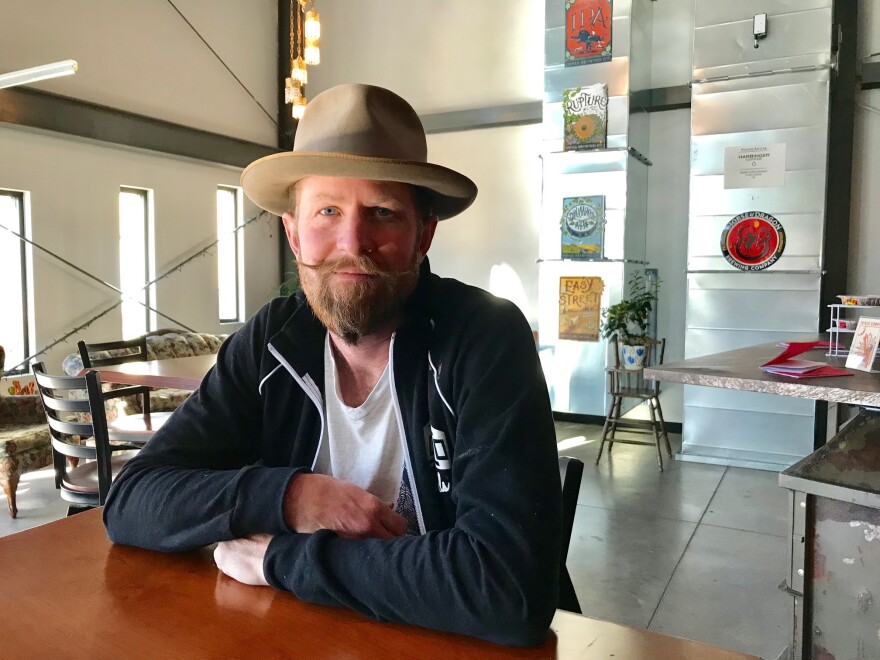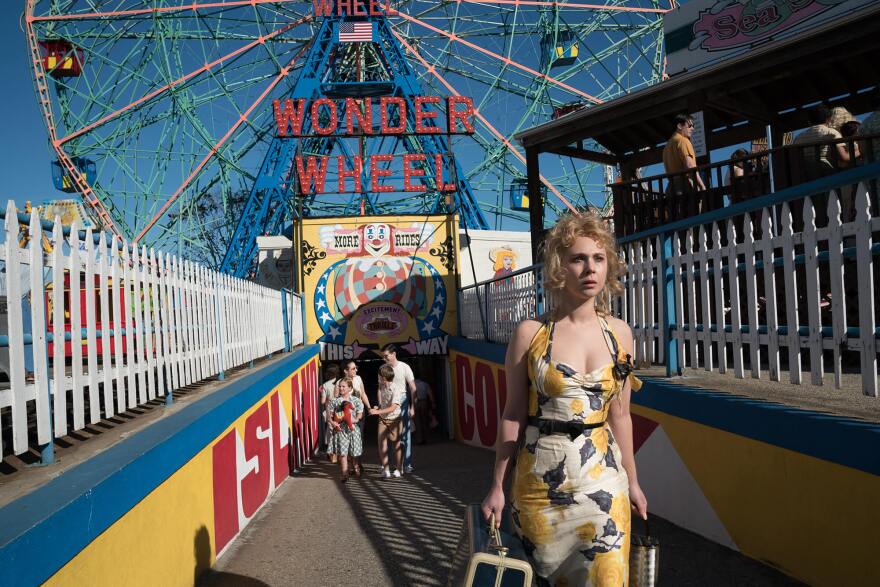At the Fort Collins independent movie theater, The Lyric, you can see Oscar contenders like ŌĆ£Lady BirdŌĆØ and ŌĆ£Three Billboards Outside Ebbing, Missouri.ŌĆØ But you wonŌĆÖt see the latest Woody Allen film, ŌĆ£Wonder Wheel.ŌĆØ
Lyric owner Ben Mozer said he and his staff decided it just wasnŌĆÖt right, especially in todayŌĆÖs climate.
ŌĆ£Woody Allen is a well-known creep in Hollywood,ŌĆØ Mozer said.
The filmmaker was accused of molesting his 7-year-old adopted daughter in 1992. Later, he married the adult, adopted daughter of his partner, Mia Farrow. While investigated, Allen was never formally charged with a sex crime and has denied the allegations.

Over the last two months, more than 100 high-powered men have been accused of sexual harassment and assault, beginning with former Miramax co-founder Harvey Weinstein. That has sparked a lot of conversations and questions, including: How do you separate the art from the artist? And, should you?
For Mozer, these questions began before Weinstein.
ŌĆ£Last year we played ŌĆśBirth of a Nation,ŌĆÖ which had a very similar controversy about it and we regretted playing it,ŌĆØ he said.
Buzz about the film quickly turned to talk about the past of the filmŌĆÖs writer, director and star, Nate Parker. In 1999, Parker was charged -- and later acquitted -- of rape while a student and wrestler at Penn State. Parker was acquitted but his teammate at the time and the filmŌĆÖs co-writer Jean McGianni Celestin was convicted -- although his case was later overturned on appeal. The woman who accused them committed suicide in 2012.

ŌĆ£One of the things that people are saying is, ŌĆśWell, why now? Why do you take a stand now?ŌĆÖŌĆØ Mozer said. ŌĆ£And I think the answer to that is, times change. A few years ago, it was harder for a single movie theater to push back against a studio and now itŌĆÖs more than just a single movie theater. ItŌĆÖs more than just one woman accusing one man of things. ItŌĆÖs an entire movement thatŌĆÖs happening right now.ŌĆØ
But with that movement comes the task of navigating an increasingly difficult minefield on several fronts, said Katherine Eggert, a professor of English at the University of Colorado Boulder, who specializes in feminist film theory.

ŌĆ£The problem is so pervasive that as a consumer your problem is, ŌĆśWell, how do I know whoŌĆÖs horrible in the industry and whose job IŌĆÖm subsidizing by paying money for a ticket for this particular movie,ŌĆÖŌĆØ Eggert said.
For Eggert, itŌĆÖs a problem that requires looking deeper into whatŌĆÖs happening both behind the camera -- and on the screen.
ŌĆ£I can decide for myself whether I think that that behavior or those attitudes are reflected in the story that this filmmaker has chosen to tell, and the way in which he or she has chosen to tell them,ŌĆØ she said. ŌĆ£And I would find that for myself a better response than just refusing to look and refusing to see.ŌĆØ
While theaters like the Lyric have the right to make their own choices, so do audiences, said KUNC film critic and UC-Denver film and history professor Howie Movshovitz. But the decision to screen or not to screen a film based on allegations is troubling to him.
ŌĆ£I get really nervous -- I would like everyone to get really nervous, frankly -- about making decisions based on allegations,ŌĆØ Movshovitz said. ŌĆ£You know, with Harvey Weinstein, he admitted it. Charlie Rose, admitted it. Kevin SpaceyŌĆÖs admitted it. Woody Allen never has and -- I donŌĆÖt know that that speaks well for Woody Allen -- but it does leave everything in the world of allegation.ŌĆØ
The potential impact could compare to that of the height of the Red Scare in Hollywood during the 1950s and 1960s, he said.
ŌĆ£If a supermarket owner in upstate New York, in his book, said that you were a communist, your career was over,ŌĆØ Movshovitz said.

At the same time, something does need to change, he added.
ŌĆ£I know -- I know -- that women are treated abominably in the film world, at all levels,ŌĆØ Movshovitz said. ŌĆ£And I know that women are harassed and exploited -- off-screen and on-screen. And so, we get right in the thick of it, you donŌĆÖt know which way to turn.ŌĆØ
Which is why judging art on anything but its own merits is a slippery slope, he said.
ŌĆ£Was Leonardo da Vinci above board in his behavior?ŌĆØ Movshovitz asked. ŌĆ£I doubt it. You know, I sort of doubt it with everybody. We just donŌĆÖt know. And are we going to throw those paintings out because we donŌĆÖt like how somebody behaved? IŌĆÖm sure there are people who would object to Caravaggio because he was gay. Ben Johnson, the English playwright, was a murderer. Are we going to just cut all of those things out? One of the things that we Americans, in particular, donŌĆÖt get because weŌĆÖre so puritanical is that awful people can create great art.ŌĆØ
ThereŌĆÖs another possibility that Eggert wants film-goers and filmmakers to explore.
ŌĆ£Someone who has those attitudes may be making great art, but just think of the greater art they could have made if that artist wasnŌĆÖt a misogynist and didnŌĆÖt ignore the presence or the opinions or the thoughts and feelings of women,ŌĆØ she said. ŌĆ£Maybe his or her artistic production would have been transcendentally better? If we think that way, we can have a vision of the future that sees how much more open and interesting the movie industry can be, for example, if it takes women seriously, if it takes people of color seriously. ŌĆ” So, we donŌĆÖt have to dump the art of the past -- or of the present -- but we can look forward to a better future.ŌĆØ

While he wonŌĆÖt be screening Woody Allen films, Mozer doesn't claim certainty over what the right call is.
ŌĆ£ItŌĆÖs a really sticky area to be in right now just as a human being, because we have chosen to ignore this as a society for so long that thereŌĆÖs always going to be an argument for, ŌĆśwhy didnŌĆÖt you come forward sooner,ŌĆÖ or ŌĆśwhat about this,ŌĆÖ or ŌĆśwhat about thatŌĆÖ -- all these examples of things that show the hypocrisy in everybody,ŌĆØ he said. ŌĆ£And just because there is hypocrisy there, doesnŌĆÖt mean that you canŌĆÖt try and correct your course.ŌĆØ
Whether or not The Lyric will ban other filmmakers or films is uncertain. For now, Mozer said, they just plan to be more introspective about the ones that do make it onto their screens.
Editor's Note: The Lyric is an underwriter with KUNC.






